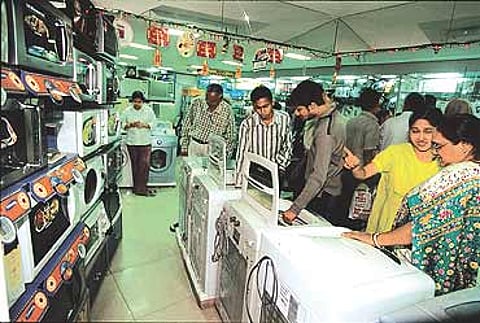Get Out The Push Cart
There's little change. The shopping bag will still weigh as much.

The proposals on household goods are likely to find favour with the urban community. An effort on the finance minister's part to provide basic necessities like clean water and power to people will be appreciated. The reduction of additional CVD on edible oil and the duty cut on sunflower oils will have homemakers smiling. But they would be worrying whether the likely increase in the price of cement will make that new home that much less affordable. In keeping with past tradition, excise on tobacco products has been bumped up this time too. Some prices, like that of telecom services, which are among the lowest in the world and driven largely by market forces, have been left alone. And there is nothing in the budget that will reduce car prices (Maruti has already announced it will hike prices on March 15).
Of course, if Chidambaram manages to rein in inflation because of a slew of budget measures andRBI's policies, prices of essential commodities may come down a bit, leaving more surplus with the households. Or if the cement manufacturers decide to lower prices to take advantage of a lower excise duty—at below Rs 190 per bag tag—it'll help a family to think of the new house. Or if the overheated economy cools down a bit—and the FM thinksGDP growth will be lower in 2007-08—and demand slackens a bit, companies will be apprehensive about hiking prices of finished products. Last year, evenFMCG companies, which witnessed not-so-great growth and where competition was fierce, found the courage to increase prices in several product categories.
There was one area where the budget could have intervened. It could have gone for a cut in air travel tax, which often works out to more than the price of the ticket of low-cost airlines. After the railways minister announced a cut in train fares, this would have been welcome by the airlines. At the moment, it doesn't really matter because budget airlines like Deccan Air contend that their prices are still 10-15 per cent cheaper than first-class rail fares. But then no changes, or minute ones, are what you would expect from a budget that is trying not to ruffle feathers and keep inflation down.
Tags